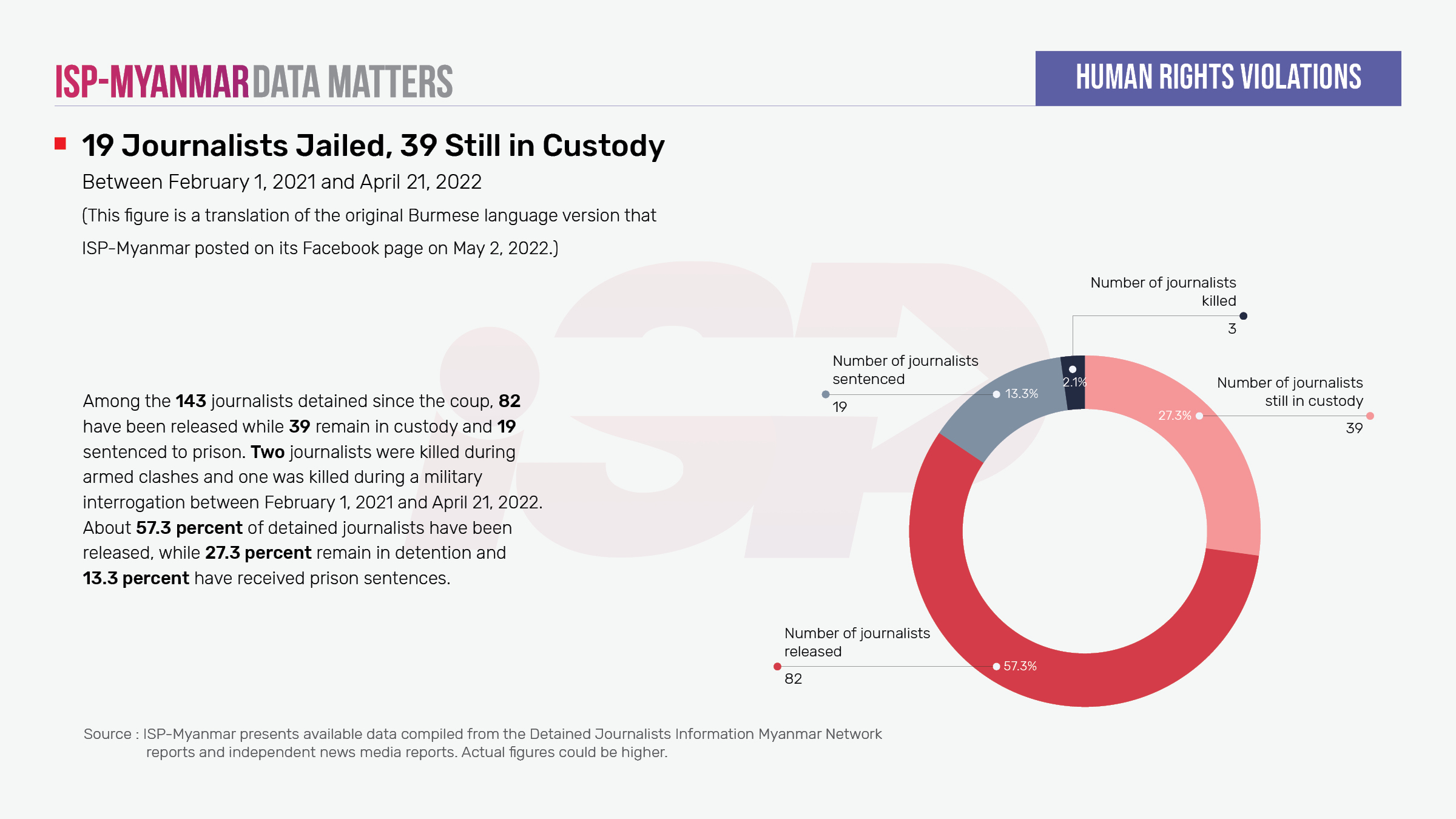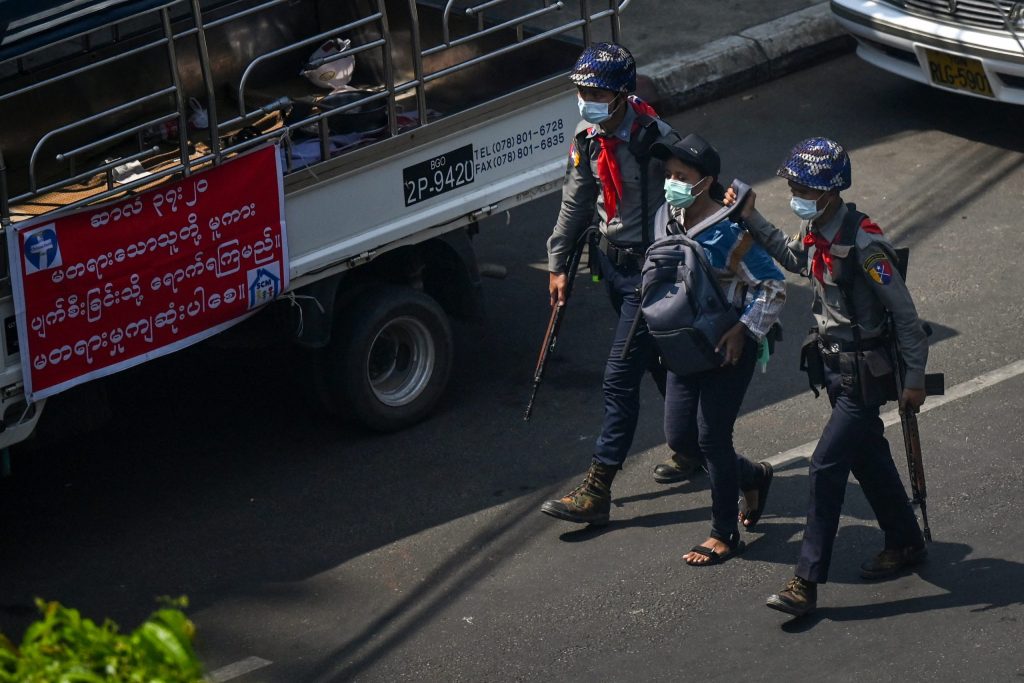Data Matters No. 17
(This article is a translation of the original Burmese language version that ISP-Myanmar posted on its Facebook page on May 2, 2022.)




May 3 marked World Press Freedom Day. Since the 2021 military coup in Myanmar, the State Administration Council (SAC) has gone to great lengths to crack down on independent news organizations by raiding editorial offices, arresting or shooting journalists as they attempt to report on protests across the country, conducting violent raids on journalists’ homes, and making arbitrary arrests.
At least 143 journalists have been arrested by SAC in the past year, while 11 news organizations have had their licenses suspended. In 2021, a total of 132 journalists were detained between February and December. Among them, 27 journalists have received prison sentences, and one was killed during a clash. Another journalist died during interrogation by the military. A total of 11 journalists were arrested between January 1 and April 21 this year, and one was sent to prison, and one was shot and killed while covering armed clashes between SAC forces and the People’s Defense Forces. The SAC also issued warrants for at least 34 journalists between February and April 2021.
Some 82 journalists among the 143 arrested in the last year have been released, while 58 remain in custody and three have died. Prison sentences have been handed down to 19 of the 58 journalists still in detention, while most of the other 39 journalists have been detained for more than a year.
In its annual census, the Committee to Protect Journalists (CPJ) listed Myanmar as among the world’s “worst countries for jailing journalists” following the military coup in February 2021. Myanmar also steadily declined in 2021 in Reporters Without Borders’ World Press Freedom Index, which stated that the February 2021 coup set press freedom in Myanmar back by 10 years.
∎ Why does it matter?
Freedom of expression, the free flow of ideas, and unhindered access to information are the lifeblood of any democracy. The right to express oneself freely is considered so essential to a democratic society that it has been enshrined in Article 19 of the Universal Declaration of Human Rights.
Journalists in Myanmar have been frequently charged with inciting fear among the public, spreading disinformation, inciting civil servants to commit crimes, and inciting disrespect and hatred for the Tatmadaw. Researchers must continue to document the extent to which State Administration Council (SAC) has suppressed basic human rights including freedom of expression and freedom of the press by imprisoning journalists and revoking the licenses of news organizations.
∎ Other relevant readings
The Assistance Association for Political Prisoners (AAPP) provides daily briefing reports on the arrest and prosecution of journalists after the military coup. Additional details can be found on the Reporting ASEAN website and from the Detained Journalists Information Network, which is run by Myanmar journalists. Data can also be compared with statements and reports issued by the Committee to Protect Journalists (CPJ) and Reporters Without Borders.

